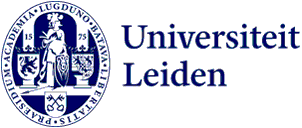Jasper's day
Jasper Knoester is the dean of the Faculty of Science. How is he doing? What kinds of things is he doing and what does his day look like? In each newsletter Jasper gives a peek into his life as dean.

Tuesday 21 November
‘I wake up to the good news that my wife Xuefei has landed at Schiphol Airport from Seoul. Things work out well, she gets home just before I leave for Leiden. So at least we have seen each other briefly. That's extra nice because I will leave the office for Brussels this afternoon and won't be back until tomorrow.
The morning is dominated by the board meeting. We have had a heavy board agenda for weeks and always spend the entire morning consulting. This is also the case today. There are a number of appointment and promotion proposals, applications for start-up and incentive grants and committee appointments. A lot of time goes into our financial future. As with almost every faculty in the country, our multi-year budget is a challenge that requires a lot of consultation, within the board, with the institutes and with the Executive Board. Fortunately, there is a strong sense of joint responsibility and those consultations are constructive.
The Recognition and Appreciation dossier also requires a lot of time this morning. We discuss how we are going to set up this important process, which should lead to a modernisation of our personnel policy, in the faculty. The assignment to a working group we want to set up in this context is also discussed in detail. We make good progress and end with agreements for adjustments to arrive at the next version of the assignment.
Finally, we spend plenty of time going through scenarios for a possible action by End Fossil in one of our buildings. An occupation has been announced for next Thursday in one of the university's buildings. Which building is still unknown, but we are keeping in mind that it could be with us. Given the nature of our buildings, safety is our main concern in this regard. Again, good contact with the Board of Governors and the institutes is very important.
Three more appointments follow in the afternoon, after which I quickly walk to the station to travel to Brussels by train. Tomorrow there is a day of meetings of UNA Europa, the alliance of 11 top European universities of which our university has been a member for a year and a half. I represent the university in the Research Strategy Group (RSG), where joint research policies and the design of research programmes are decided.
On the way, I read documents for tomorrow. As always, they are bulky documents. Fortunately, the preparation is excellently supported by staff from the university's Strategy and Academic Affairs Department (SAZ). This helps not only in reading, but also in determining positions I will take in the meeting. Despite my delayed train, I can just check into the hotel in Brussels before going to a dinner hosted by the RSG. The meetings tomorrow include not only RSG members but also a large group of other directors and supporters, a setting in which we do not get to know each other well and the exchange of ideas is often slow. The dinner with just the RSG members does provide a good opportunity for that and is thus good preparation for tomorrow.
After dinner, I walk through Brussels' European quarter back to the hotel. Not the prettiest part of the city, but you really feel like an EU citizen here. At the hotel, I interact briefly with my family at home, read the final papers for tomorrow and watch previews of Wednesday's Lower House elections. It all still looks very unclear and I already know what will occupy me on the train back tomorrow evening: will The Hague be further away from Brussels or not?'
